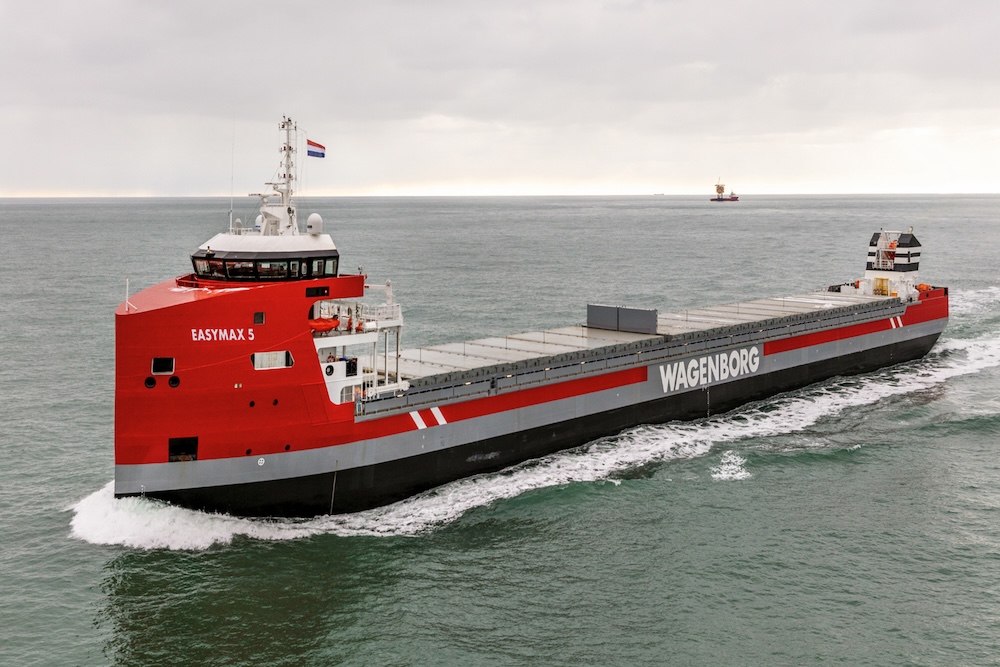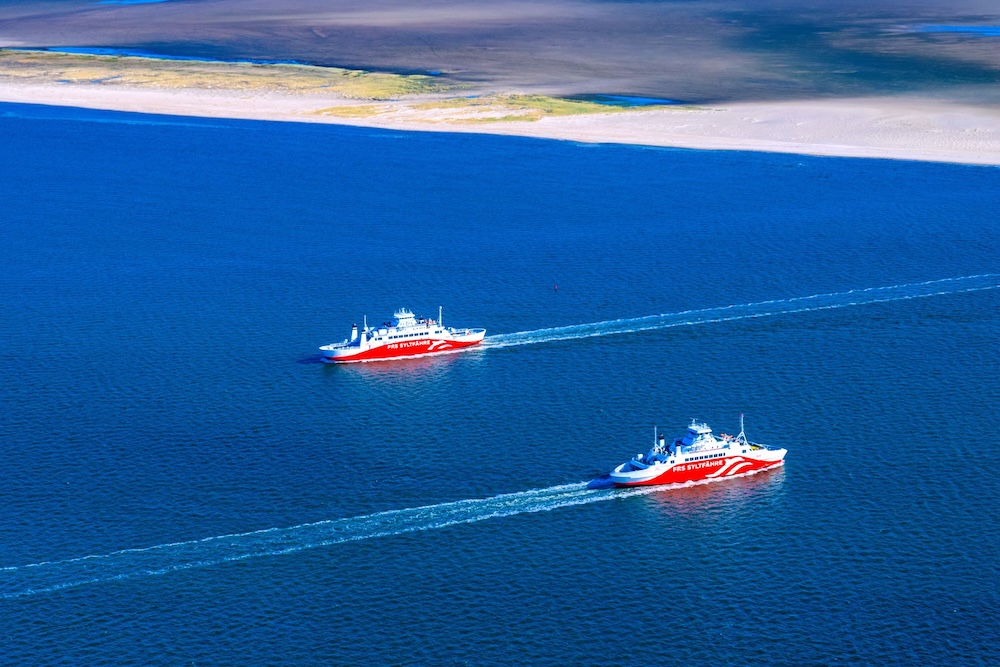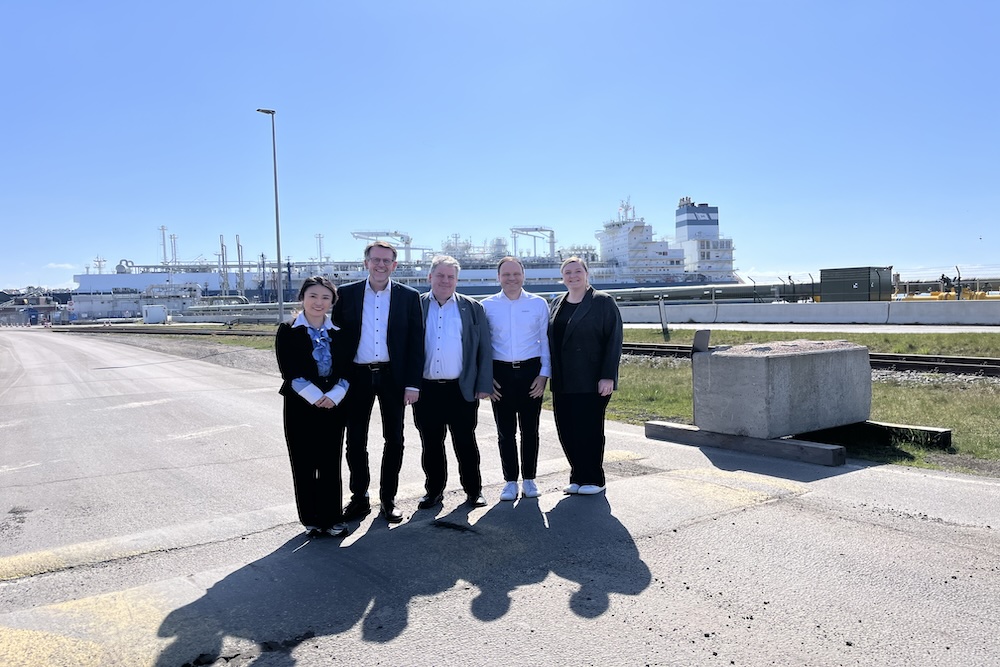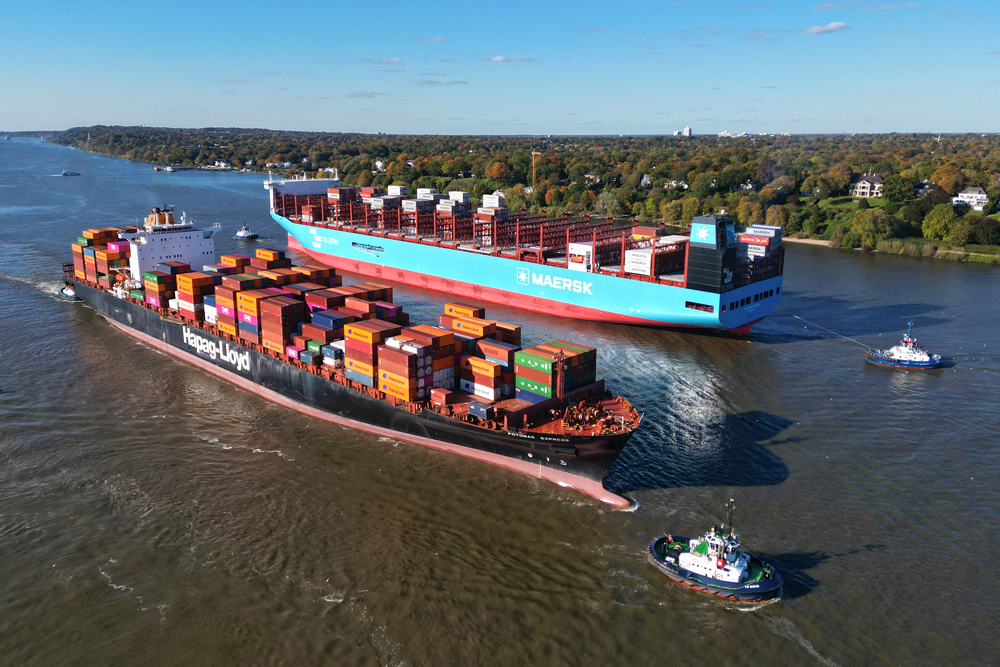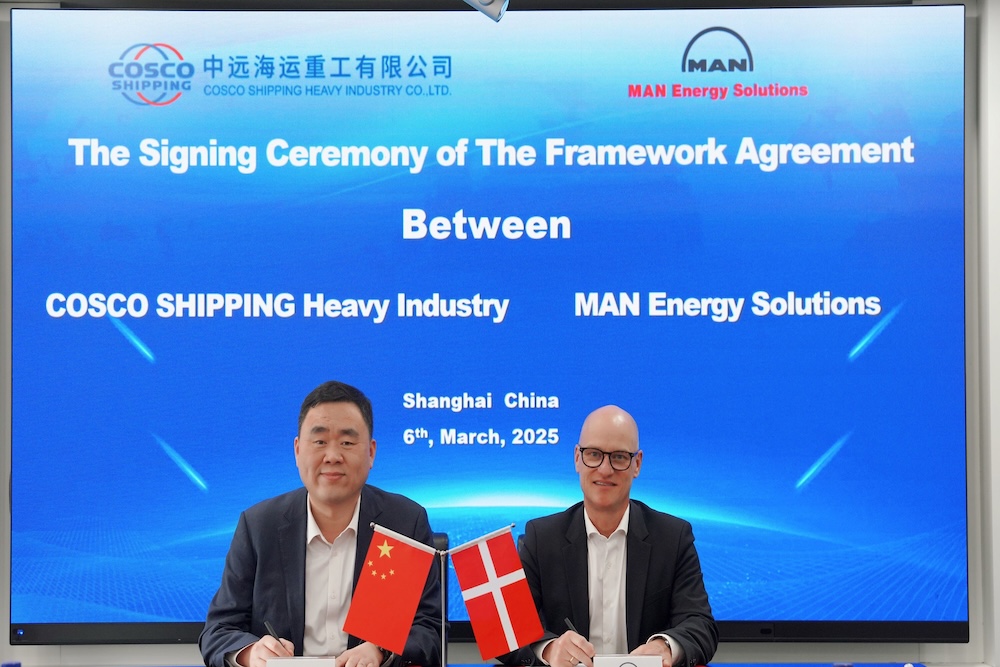The Zero Emission Maritime Buyers Alliance (Zemba) has completed its first collective tender, the winner being the Hamburg-based liner shipping company Hapag-Lloyd.
Hapag-Lloyd is to offer ZEMBA members a reduction in greenhouse gas emissions in maritime transportation of over 90% compared to fossil fuel-based transport options from 2025.
The tender covers more than 1 billion TEU miles of zero-emission ocean transportation on a route from Singapore to Rotterdam in the years 2025-2026. More than a dozen Zemba members, including founding members Amazon, Patagonia and Tchibo, as well as Bauhaus, Brooks Running, DB Journey, Green Worldwide Shipping, lululemon, Meta, New Balance, Nike, REI Co-op and Sport-Thieme, have made a joint commitment.
Hapag-Lloyd was selected as the winner of ZEMBA’s first tender. Upon completion of the contract, ZEMBA expects members to collectively avoid at least 82,000 tons of CO2e within two years through Hapag-Lloyd’s independently certified and exclusively waste-based biomethane service.
“Climate-friendly shipping customers are increasingly committed to zero-emission shipping and the supply chain is responding. As we begin this partnership, we commend Hapag-Lloyd’s transparency, collaborative spirit and willingness to innovate with Zemba on this first tender,” says Ingrid Irigoyen, President and CEO of Zemba. “Our collective procurement approach is working and we look forward to pushing the boundaries of what is technically and economically feasible in the following tenders, with a strong focus on maritime e-fuels.”
Zemba targets e-fuels with next tender
The initiative urges suppliers of maritime e-fuels and other zero or near-zero-emission propulsion alternatives to accelerate their market readiness in preparation for our next tender.
Rolf Habben Jansen, CEO of Hapag-Lloyd, explains: “To achieve our goal of zero-emission shipping by 2045, we need partners like Zemba to support us on our decarbonization journey and push the boundaries of what is possible. With our offering, we want to significantly reduce greenhouse gas emissions and contribute to a greener future for global shipping.”
Given the expected potential for the first deployment of e-fuels on the water in 2027, this agreement has been adjusted from three years to two years – 2025-2026 – to allow members to focus on supporting e-fuels and technologies of non-biological origin as part of Zemba’s second tender.
To ensure that the next call unlocks investment in the next generation of fuels and technologies, Zemba intends to gather information from stakeholders across the maritime value chain working on the development of e-fuel infrastructure, bunkering, vessel design and other details in the coming months. The second tender is expected to start in the course of 2024.
Cooperation with Maersk decarbonisation centre
Zemba and Hapag-Lloyd will reportedly use a “book & claim” system to facilitate the verification and credible and appropriate attribution of the environmental credentials of Hapag-Lloyd’s independently certified waste-based biomethane shipping service. A number of Zemba members and Hapag-Lloyd are working together with the Mærsk Mc-Kinney Møller Center for Zero Carbon Shipping and the RMI to develop a not-for-profit maritime book & claim system that will enable companies to invest in the zero carbon transition and reap the environmental benefits appropriately without disrupting logistics flows critical to the global economy.
The results of the Zemba tender process will also provide real-world insights to inform the development of an ambitious global policy to decarbonise maritime transport. In the coming months, the Aspen Institute, which serves as the secretariat for Zemba, will work with cargo owners to share the lessons learned from the ZEMBA tender process and support the International Maritime Organization (IMO) in developing robust LCA policies and medium-term measures “that are credible, transparent, verifiable and create a level playing field for climate action across the value chain.”
The Zero Emission Maritime Buyers Alliance is the first buyer’s group in the maritime sector whose aim is to accelerate the commercial adoption of zero-emission shipping, enable economies of scale and help cargo owners maximise the potential for emissions reduction that a single cargo buyer could not achieve alone. The Cargo Buyers Alliance is an initiative of Cargo Owners for Zero Emission Vessels(CoZEV) and is supported by the Aspen Institute’s Energy and Environment Program.










